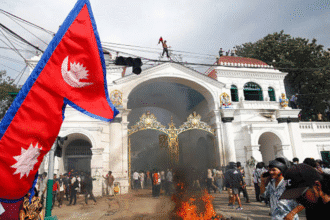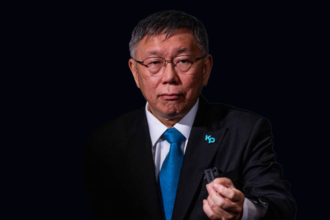The dramatic political changes in Bangladesh that resulted in Prime Minister Sheikh Hasina being ousted last year have led to several surprising developments, including Dhaka’s growing closeness with one-time rival Pakistan. Hasina, who ruled Bangladesh for 15 years, was a strong ally of India and maintained a distance from Pakistan. However, following mass protests that led to her departure, Bangladesh-Pakistan relations appear to be undergoing a major shift.
- Why Are Bangladesh and Pakistan Strengthening Their Relationship?
- What Is the Historical Context Behind Their Rivalry?
- What Does This Mean for India?
- Is There a Political Angle to This Shift?
- Can Economic Cooperation Between Bangladesh and Pakistan Overcome Historical Tensions?
- Will Historical Grievances Hinder Future Diplomatic Efforts?
- What Lies Ahead for Bangladesh-Pakistan Relations?
Relations between Dhaka and Delhi have cooled significantly since Hasina fled to India, seeking refuge. Bangladesh has requested her extradition to face charges of crimes against humanity, money laundering, and corruption—charges she has vehemently denied. This political transition has opened up new diplomatic avenues for Bangladesh, reshaping its foreign policy stance.
Why Are Bangladesh and Pakistan Strengthening Their Relationship?
For the first time in decades, Pakistan and Bangladesh have begun directly trading. Last month, Dhaka imported 50,000 tonnes of rice from Islamabad. Additionally, direct flights between the two nations have resumed, military contacts have been reestablished, and visa procedures have been simplified. Reports also suggest growing cooperation on security matters. The revival of these ties signals a broader realignment of Bangladesh’s diplomatic strategy.
This shift marks a stark contrast to the diplomatic strain of the past 15 years. A former senior Bangladeshi diplomat noted, “For the past decade and a half, the Bangladesh-Pakistan relations were on a difficult trajectory, but now it appears to be returning to that of two normal neighbors.”
Economic agreements are not the only indicator of improving ties. High-level government meetings have become frequent, with both nations exploring mutual benefits in trade and defense collaborations.
What Is the Historical Context Behind Their Rivalry?
The relationship between Pakistan and Bangladesh is deeply rooted in the painful events of 1971. That year, Bangladesh, then known as East Pakistan, fought a brutal war to gain independence from Islamabad. India supported the Bengali rebels during the nine-month-long conflict, which ended with the creation of Bangladesh. The war left scars that remain unhealed to this day, with Bangladesh demanding a formal apology from Pakistan for the atrocities committed. However, Islamabad has consistently avoided issuing such an apology.
During a previous period of diplomatic warmth (2001–2006), when the Bangladesh Nationalist Party (BNP) and Jamaat-e-Islami coalition governed the country, relations with Pakistan improved. However, after Hasina’s Awami League took power in 2009, Bangladesh distanced itself from Islamabad, aligning closely with India. That dynamic is now shifting once again, driven by new economic and geopolitical calculations.
What Does This Mean for India?
India is watching these developments with growing concern. The resurgence of military ties between Pakistan and Bangladesh is particularly alarming for New Delhi. In January, a high-level Bangladeshi military delegation visited Pakistan, holding talks with Pakistan’s influential army chief, General Asim Munir. The Bangladeshi Navy also participated in a multinational maritime exercise off the Karachi coast in February.
A former Indian high commissioner to Bangladesh described the situation as a “déjà vu moment,” recalling past allegations that Indian insurgents were trained inside Bangladesh with support from Pakistan’s intelligence agency. Though both Pakistan and Bangladesh have denied such claims, India remains wary of the rekindling of military ties between the two nations.
Additionally, Bangladesh’s warming relations with China, which has close ties with Pakistan, have further intensified India’s concerns. The evolving regional dynamics could reshape South Asia’s security landscape in the coming years.
Is There a Political Angle to This Shift?
Some analysts believe that Dhaka’s renewed ties with Islamabad serve as a tactical counterbalance against India’s dominance in South Asia. A London-based South Asian affairs expert noted, “Pakistan and Bangladesh have a strategic relationship at the moment. Together, they seek to push back against India’s influence in the region.”
Moreover, reports suggest that Pakistan is also reviving ties with Islamist political groups in Bangladesh, such as Jamaat-e-Islami, which had supported Islamabad during the 1971 war. This further fuels speculation about the broader geopolitical implications of the growing Bangladesh-Pakistan relations.
The interim administration in Bangladesh has dismissed reports about Pakistani intelligence operatives working within its borders as “baseless.” However, concerns persist in India about the security ramifications of this growing alliance.
The evolving power dynamics raise questions about whether Bangladesh is recalibrating its foreign policy to assert greater regional independence.
Can Economic Cooperation Between Bangladesh and Pakistan Overcome Historical Tensions?
Despite political tensions, trade relations between Bangladesh and Pakistan remain underdeveloped, with bilateral trade valued at less than $700 million. However, economic experts believe that Pakistan, with a population exceeding 250 million, represents a significant market for Bangladesh in the long term.
“Trade relations are currently constrained by high tariffs, as well as visa and travel obstacles. But if diplomatic and political ties continue to improve, these constraints will ease,” an economics professor observed.
Pakistan’s Foreign Minister is expected to visit Dhaka in April, during which economic cooperation will likely be a key topic. However, Bangladesh’s general elections later this year may bring a new government with different foreign policy priorities.
Expanding trade between the two nations could lead to the development of new industries and job opportunities. Business leaders in both countries are optimistic that strengthening Bangladesh-Pakistan relations will foster long-term economic growth.
Will Historical Grievances Hinder Future Diplomatic Efforts?
The 1971 war remains the biggest obstacle in normalizing Bangladesh-Pakistan relations. Bangladesh has consistently demanded that Pakistan acknowledge and apologize for the war crimes committed during the conflict. A former Bangladeshi diplomat emphasized, “Pakistan needs to own the crimes that took place during the independence war. Without that, true reconciliation is difficult.”
Even some former Pakistani military officials acknowledge that the lack of an apology remains a major stumbling block. However, they also argue that Bangladesh should acknowledge the attacks on Urdu-speaking Bihari communities during the war.
The unresolved historical grievances continue to cast a shadow over diplomatic efforts. While economic and military ties may improve, genuine reconciliation requires addressing past atrocities in a meaningful way.
What Lies Ahead for Bangladesh-Pakistan Relations?
With trade and military ties strengthening, Bangladesh and Pakistan appear to be setting aside past hostilities for mutual economic and strategic benefits. However, deep-seated historical wounds, security concerns, and regional geopolitics could still influence the long-term stability of their relationship.
The upcoming Bangladeshi elections will be crucial in determining whether the warming Bangladesh-Pakistan relations remain a short-term adjustment or a long-term strategic shift. As both countries navigate their complex history and evolving geopolitical realities, the world will be watching to see how this diplomatic realignment shapes South Asia’s future.








